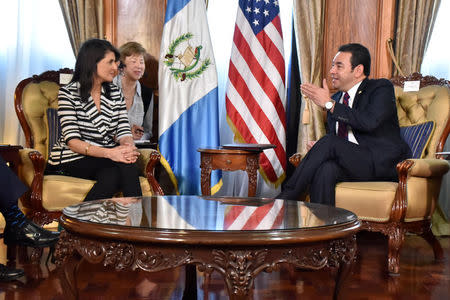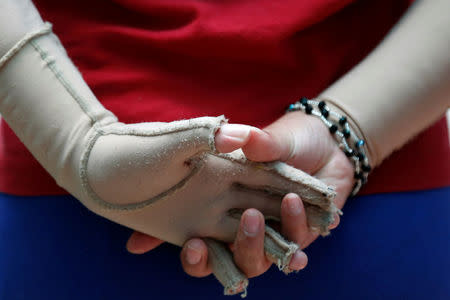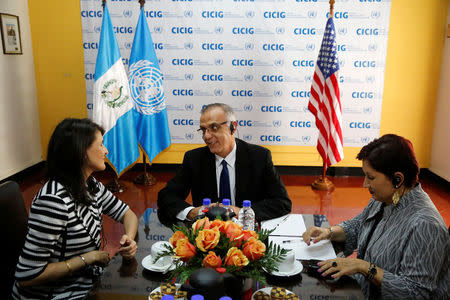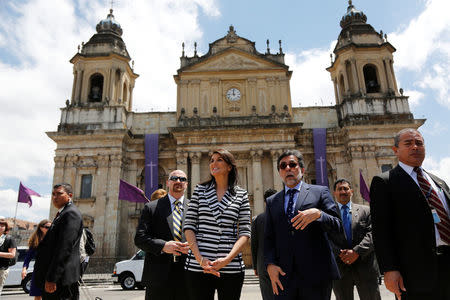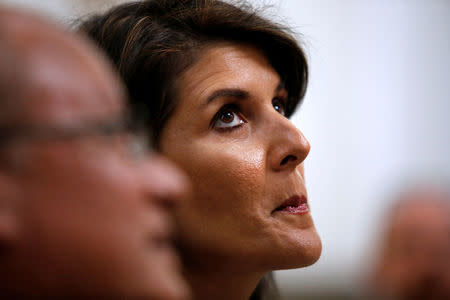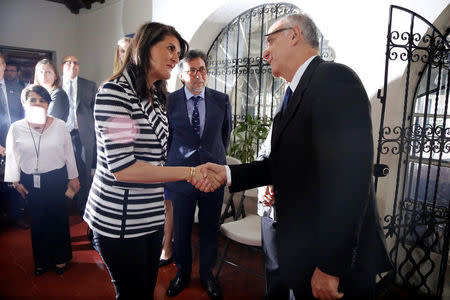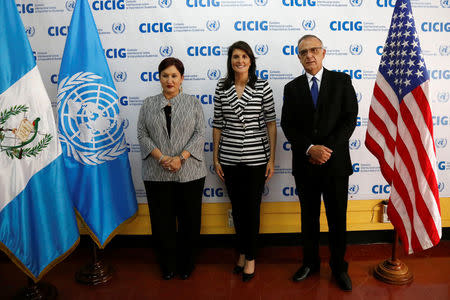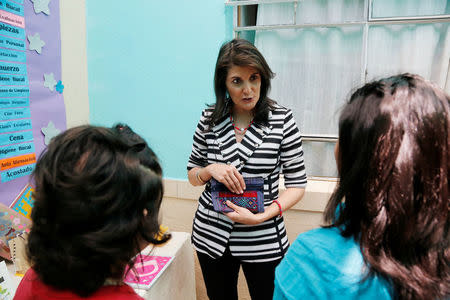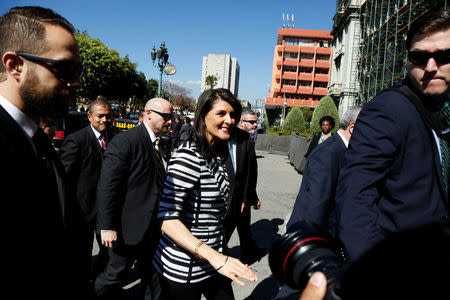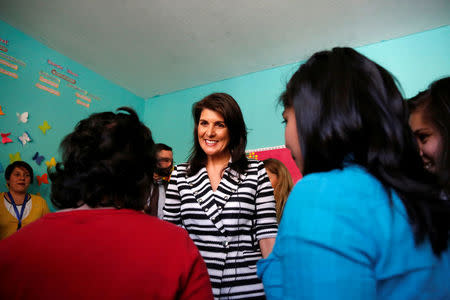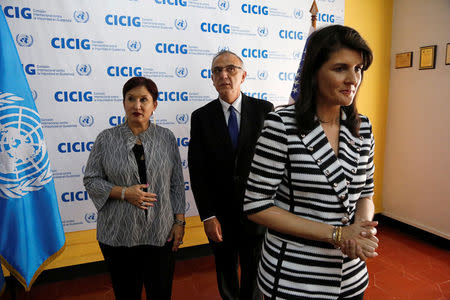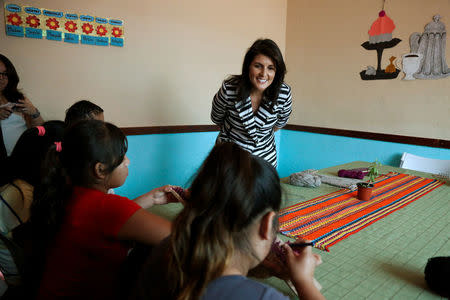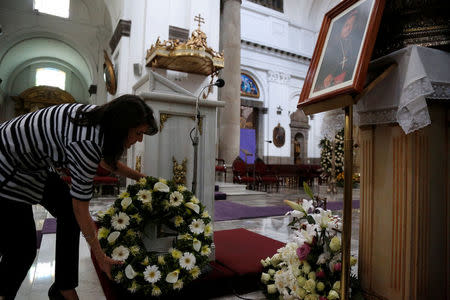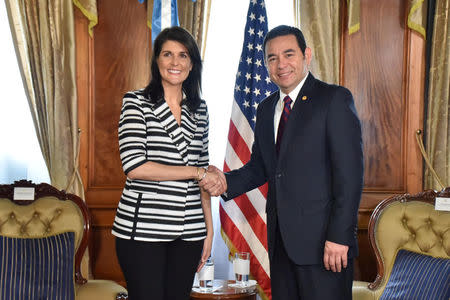U.S. envoy tells Guatemala president: We back U.N. graft body, chief
By Michelle Nichols GUATEMALA CITY (Reuters) - U.S. Ambassador to the United Nations Nikki Haley told Guatemalan President Jimmy Morales on Wednesday that Washington supports a U.N.-backed anti-graft body and its commissioner, who Morales has tried to oust after investigators targeted him. Haley said during a visit to Guatemala City Morales had not asked her for help to remove the head of the decade-old International Commission against Impunity (CICIG), Ivan Velasquez, a veteran Colombian prosecutor. "I told him that we supported CICIG and supported the commissioner," Haley told two reporters traveling with her in the poor, violent Central American country. She said she encouraged Morales to continue his own anti-corruption efforts, which she said "were not getting heard." Haley told Morales the Guatemalan people support CICIG and it was "in his best interest" to continue backing the body. Guatemala's attorney general and CICIG jointly sought in August to investigate Morales, a former comedian, over the illegal financing allegation. Morales declared Velasquez "persona non grata" two days later. A CICIG investigation into allegations of illicit campaign financing, which followed separate graft probes into members of the president's family, had threatened Morales with impeachment. He escaped that fate. Guatemalan Foreign Minister Sandra Jovel met U.N. Secretary-General Antonio Guterres, who has the power to remove Velasquez, earlier this month. Guterres expressed shock in August at Morales' attempt to expel Velasquez. Morales won office in 2015 running on a platform of honest governance after former president Otto Perez Molina was forced to resign and was imprisoned in a multi-million dollar graft case stemming from a CICIG investigation. Haley also met Velasquez and Guatemala Attorney General Thelma Aldana on Wednesday. "I think CICIG can improve on a lot of fronts," said Haley, adding that it should not be politicized. The United States has spent $44.5 million in funding on CICIG since it was established in 2007. "I told them they should be like the FBI ... everybody knows they do their job but they do it quietly," she said. "They don’t need to be in the paper every day." Many politicians in Guatemala consider the foreign-led body, which is unusual among U.N. bodies for its powers to bring cases to prosecutors, to be a violation of national sovereignty. Anti-corruption activists credit it with cleaning up government. Senior CICIG official Osvaldo Lapuente said earlier on Wednesday: "At the end of the day we're trying to strengthen democracy here in Guatemala, we think the United States is an important ally for us." (Reporting by Michelle Nichols; Editing by Paul Tait)
